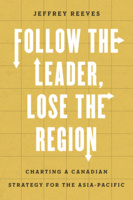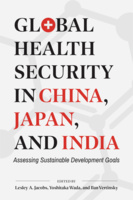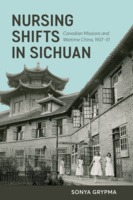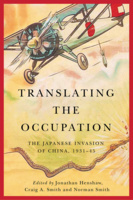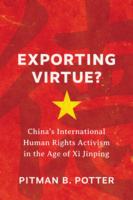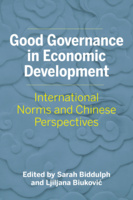Follow the Leader, Lose the Region
Charting a Canadian Strategy for the Asia-Pacific
Follow the Leader, Lose the Region conclusively demonstrates that an understanding of how Asia sees itself should inform Canadian foreign policy in the region.
China’s Asymmetric Statecraft
Alignments, Competitors, and Regional Diplomacy
China’s Asymmetric Statecraft uncovers the different narratives and paradigms that constitute Chinese foreign policy toward its weaker neighbours, alerting us to a dramatically changing international environment.
Global Health Security in China, Japan, and India
Assessing Sustainable Development Goals
Global Health Security in China, Japan, and India uses the targets set by the UN Sustainable Development Goals to conduct an impressively thorough assessment of coordinated health care in three major Asian countries.
Frontier Fieldwork
Building a Nation in China’s Borderlands, 1919–45
Frontier Fieldwork exposes the transformative power that early-twentieth-century fieldwork had in placing the Sino-Tibetan borderlands at the centre of China’s nation-making process and race to modernity.
Nursing Shifts in Sichuan
Canadian Missions and Wartime China, 1937–1951
Nursing Shifts in Sichuan is a testament to the resilience of educated women, exploring modern nursing as one of the most consequential additions to health care in early-twentieth-century China.
Globalization, Poverty, and Income Inequality
Insights from Indonesia
Globalization, Poverty, and Income Inequality uses diverse empirical approaches to reveal the sometimes unexpected effects of trade and globalization on poverty and inequality.
Translating the Occupation
The Japanese Invasion of China, 1931–45
Featuring a collection of translated texts written by writers who lived through the occupation, Translating the Occupation challenges and deepens our understanding of the tensions and transformations that Japanese invasion wrought on Chinese society.
Exporting Virtue?
China’s International Human Rights Activism in the Age of Xi Jinping
Exporting Virtue? critically explores the ways in which China is attempting to change international human rights standards to accommodate its interests.
Good Governance in Economic Development
International Norms and Chinese Perspectives
Good Governance in Economic Development examines what happens at the intersection of international and Chinese conceptions of transparency, accountability, and public participation.
Unmooring the Komagata Maru
Charting Colonial Trajectories
Unmooring the Komagata Maru challenges conventional historical accounts to consider the national and transnational colonial dimensions of the Komagata Maru incident.

